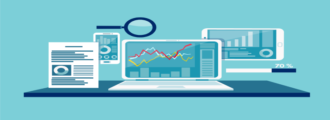When you think about it, there are essentially two sides to the healthcare IT environment. On the one hand, you have your enterprise resource planning (ERP) system. This is often referred to as the backbone of the organization and can include applications for finance, human resources, supply chain, customer relationship management, or inventory management. Everything that supports the “business” end of things.
On the other hand, you have a system for electronic health records (EHR), including medical history, medications, diagnosis, doctor’s notes, and everything else that goes into managing patient care. But with Workday ERP being the system of record for many of our healthcare clients, we’re often asked, “Should we be integrating our Workday ERP with our EHR?” and the answer is a resounding, “Yes!”
In this article, we’ll explain some of the benefits you can expect from integrating the two biggest workhorse systems in your IT stack. Let’s dive in.
Making the Case for ERP/EHR Integration
If you’re in the healthcare industry, your ERP and EHR are the two critical platforms that manage the majority of your information and workflows. When they work together in harmony, they ensure clinicians and administrators have access to all the data they need to succeed, from patient information to financials, all in real time.
However, we’ve seen many healthcare providers struggling with systems cobbled together out of the IT equivalents of duct tape and bubble gum, some even requiring manual processes just to run a basic report! If that scenario sounds unpleasantly familiar to you, it’s time to modernize and consolidate.
When business leaders and practitioners have a single source of truth for data, they can react to changing business needs like emergencies, pandemics, and regulatory changes quickly and efficiently. In the end, integrating your ERP and EHR systems (like Workday and your clinical apps, for example), you’ll have more accurate data and reporting, fewer manual tasks to worry about, and self-service options for employees, no matter where they work.
Key Areas of Integration
There are a few areas across the organization that will see the most significant improvements when you integrate your ERP and EHR systems. Here’s a breakdown of those benefits:
Finance
In the healthcare space, the EHR system is responsible for almost all of your revenue. Once your general ledger is integrated between Workday and your EHR, you can ensure your financial statements are accurate and up to date.
Supply Chain
Another critical area for healthcare providers is the supply chain. Workday is the system that houses all of your data on supplies, while your EHR documents what providers are using. Far too often, the task of going back into the ERP to requisition what’s been used so that supplies can be replenished when needed is a manual task that someone has to perform. That’s not only inefficient, it’s practically a recipe for manual errors that are sure to cause you headaches down the road.
By integrating Workday and your clinical app, however, you can automate inventory management to create efficiencies across the organization and ensure you don’t run out of needed medical supplies because no one placed an order for them.
Business Intelligence and Reporting
When you have accurate data flowing between your ERP and EHR in real time, you can make more confident business decisions. For example, if you want to know if a specific service line is profitable, you’ll need to track down information on employees, equipment, and rooms from the ERP system, as well as hunt for all those procedures and reimbursements from your clinical app. But by integrating that data into a single source of truth, answering that question becomes a snap.
Here are a few other healthcare-specific data use cases you might find intriguing:
- Daily patient reports and revenue
- Labor cost compared to non-labor cost
- Practitioner staffing requirements vs. skill sets
- Value-based care against physician compensation benchmarks
Predictive Analytics
When the pandemic started, healthcare providers needed to know everything about their supplies, resources and, even financial information at all times. And any process was merely “inefficient” before COVID became “nearly impossible to accomplish” afterward. This is yet another situation where integrating Workday and your EHR can help out.
While predictive analytics can’t exactly diagnose the onset of a worldwide pandemic, it can give you a better picture of what to expect so that you can plan accordingly, (a bit like the weather forecast).
Partner with Surety Systems
If you’re ready to have better data at your fingertips and eliminate those manual processes for good, it’s time to integrate your ERP and EHR. Our senior-level Workday consulting team understands the best practices in the healthcare space. We can assess your current platforms and develop an integration strategy that fits the unique needs of your organization.
Let our team solve your IT challenges, so your team can focus on patient health and delivering the best possible care. Contact us today to get started.



